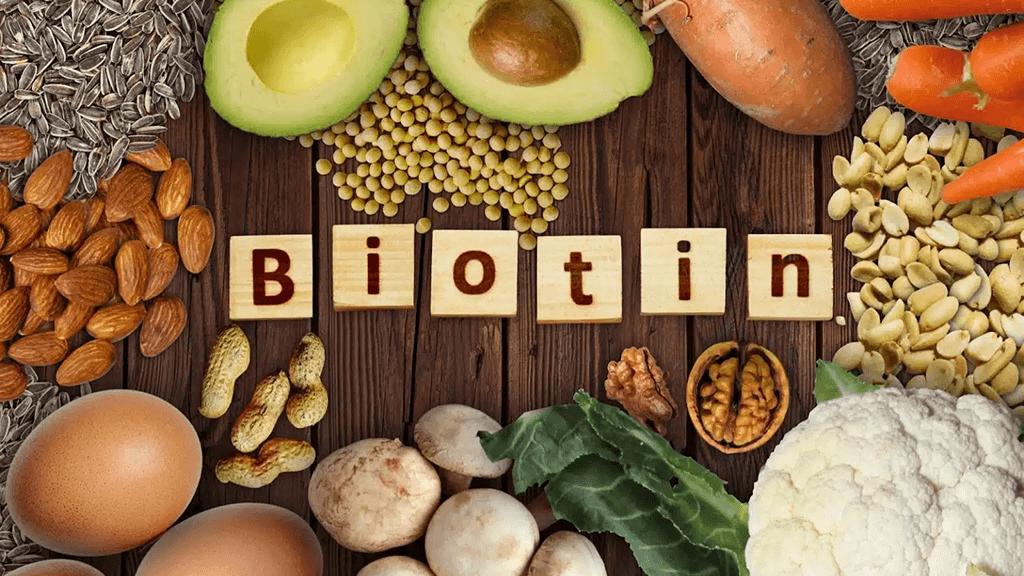Nowadays, it’s easy to feel drained and reach for quick fixes like coffee and sugary snacks for an energy boost. But these provide only temporary relief and often lead to an energy crash later on. That’s where vitamins for energy come in. By ensuring you’re getting adequate amounts of essential vitamins, you can support your body’s natural energy production processes and boost your overall vitality.
If you’re struggling with chronic fatigue, it’s important to address the underlying causes. While factors like lack of sleep and stress can contribute to low energy levels, nutritional deficiencies can also play a significant role.
If you’re looking for a deeper dive into vitamins for mood and energy, check out our relevant article.
Table of Contents
Essential Vitamins for Energy Production
Let’s explore some of the most important vitamins for energy:
1. Vitamin B12: The Energy Catalyst
Vitamin B12 is a crucial nutrient for energy production and overall health. It plays a vital role in:
- Red Blood Cell Formation: Vitamin B12 is essential for the production of healthy red blood cells, which are responsible for transporting oxygen and nutrients throughout your body [1]. Without enough B12, your cells may not receive the necessary components for energy production.
- Energy Metabolism: B12 is directly involved in converting the food you eat into usable energy. It acts as a catalyst in various metabolic reactions that generate ATP (adenosine triphosphate), your body’s primary energy currency.
Vitamin B is so closely responsible for ciculation that we wrote a whole article on how it helps support cardiovascular function.
Vitamin B12 Deficiency
- Dietary Sources: Vitamin B12 is primarily found in animal products like fish, meat, eggs, and dairy.
- Risk Factors: People following vegan or vegetarian diets may be at a higher risk of B12 deficiency.
- Supplementation: If you’re concerned about your B12 levels, talk to your doctor about supplementation.
Beyond vitamins, adaptogenic herbs like Ashwagandha for calm energy can help balance stress hormones, supporting both steady energy and emotional resilience.
2. Vitamin D: The Sunshine Vitamin for Vitality
Often referred to as the “sunshine vitamin,” Vitamin D is more than just a vitamin—it’s actually a hormone that plays a vital role in various bodily functions, including energy production.
- Muscle Function and Mood: Vitamin D is linked to muscle health and mood regulation. Studies have shown that vitamin D supplementation can improve muscle strength and reduce fatigue [2].
- Dopamine and Serotonin: Vitamin D may also influence the production of dopamine and serotonin, neurotransmitters that play crucial roles in energy levels, motivation, and mood [3].
- Depression and Fatigue: Low vitamin D levels have been linked to depression and fatigue. A year-long study found that vitamin D supplementation significantly improved mood and reduced fatigue in participants.
- Rapid Fatigue Relief: Even a single high dose of vitamin D (100,000 IU) has been shown to provide significant relief from fatigue. [4]
Vitamin D Deficiency
- Prevalence: It’s estimated that over half of the world’s population may be deficient in vitamin D [5].
- Supplementation: If you suspect you’re deficient, talk to your doctor about vitamin D supplementation.
Beyond Vitamins: Other Factors for Energy
While vitamins for energy are essential, other factors can also impact your energy levels:
- Stress Management: Chronic stress can deplete your energy reserves. Consider stress-reducing practices like meditation, yoga, or spending time in nature. Speaking of stress management, you may consider using adaptogens like those in Ashwagandha tea, which can reduce stress and increase energy.
- Herbal Supplements: Adaptogenic herbs like Ashwagandha and Rhodiola can help your body cope with stress and improve energy levels.
- Mineral Balance: Ensure you’re getting enough iron and magnesium, as these minerals are crucial for energy production, oxygen transport, and muscle function [6].
Adding Omega-3s for mood and brain health helps regulate inflammation and supports neurotransmitter balance, with strong evidence for both mood and cognitive energy.
Boost Your Energy Naturally
If you’re looking for a natural way to boost your energy levels, focus on getting adequate amounts of vitamins for energy like B12 and D. Combine this with a healthy lifestyle that includes stress management, regular exercise, and a balanced diet, and you’ll be well on your way to feeling more energized and vibrant.
FAQ
Top hitters: B12/B-complex (cellular energy + red blood cells), vitamin D (mitochondria, muscle + mood), and supportive iron (oxygen transport) and magnesium (ATP reactions, muscle/nerve function).
Common flags: fatigue, brain fog, exercise intolerance. Risk groups include vegans (B12), low sun exposure (vitamin D), heavy periods (iron). A clinician can confirm with labs (e.g., B12, vitamin D, iron studies).
Take B-complex/B12 with breakfast or lunch. Vitamin D with a meal that contains fat. Iron away from coffee/tea and with vitamin C for absorption. Magnesium often works well in the evening.
Generally yes, but separate iron from calcium/coffee/tea. If you take medications or have conditions (e.g., thyroid, anemia treatment), check with your clinician.
If you were deficient, many notice changes in 2–6 weeks (sometimes sooner for B12). If levels were normal, effects are usually subtler—think steadier days, better training recovery.
Pick what you’ll take consistently. Prioritize dose accuracy, third-party testing, and reasonable sugar (for gummies). For B12, methylcobalamin or adenosyl/hydroxo forms are popular; for D, D3 is standard.
Cites and Sources
No Citations
Show Citations
[1] - Ankar, A., & Kumar, A. (2024b, September 10). Vitamin B12 deficiency. StatPearls - NCBI Bookshelf. https://www.ncbi.nlm.nih.gov/books/NBK441923/
[2] - Di Molfetta, I. V., Bordoni, L., Gabbianelli, R., Sagratini, G., & Alessandroni, L. (2024). Vitamin D and its role on the fatigue mitigation: A Narrative review. Nutrients, 16(2), 221. https://doi.org/10.3390/nu16020221
[3] - Kim, S., Seok, H., & Kim, D. S. (2016). Relationship between serum vitamin D levels and symptoms of depression in stroke patients. Annals of Rehabilitation Medicine, 40(1), 120. https://doi.org/10.5535/arm.2016.40.1.120
[4] - Nowak, A., Boesch, L., Andres, E., Battegay, E., Hornemann, T., Schmid, C., Bischoff-Ferrari, H. A., Suter, P. M., & Krayenbuehl, P. (2016b). Effect of vitamin D3 on self-perceived fatigue. Medicine, 95(52), e5353. https://doi.org/10.1097/md.0000000000005353
[5] - Forrest, K. Y., & Stuhldreher, W. L. (2011). Prevalence and correlates of vitamin D deficiency in US adults. Nutrition Research, 31(1), 48–54. https://doi.org/10.1016/j.nutres.2010.12.001
[6] - Tardy, A., Pouteau, E., Marquez, D., Yilmaz, C., & Scholey, A. (2020). Vitamins and Minerals for energy, fatigue and Cognition: A Narrative review of the biochemical and Clinical evidence. Nutrients, 12(1), 228. https://doi.org/10.3390/nu12010228




